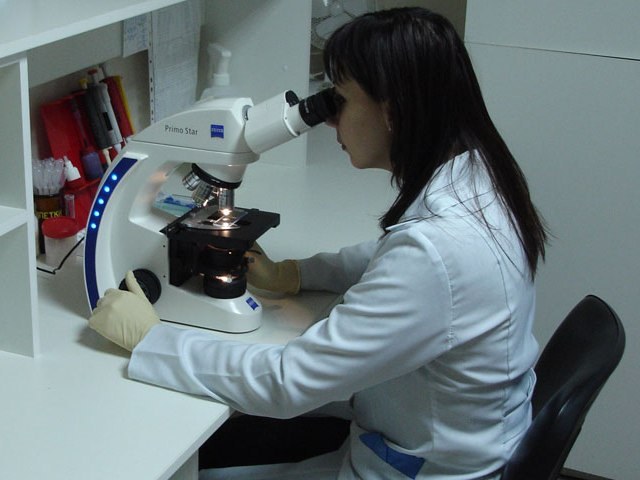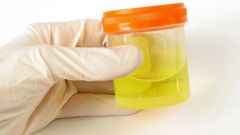Instruction
1
For the detection of stones (calculi) in the kidney primarily give the total (clinical) urinalysis. If it is found to be salt crystals, it will be an indirect symptom of kidney disease. The definition of the type of salts can give preliminary information on the chemical composition of the rocks. For example, if the urine were identified oxalates, there is a high probability of the presence of kidney calcium oxalate calculus.
2
An important indicator is the acidity (pH) of urine. If it is 7.0, the urine is neutral, at a pH below 7.0 are acidic and above 7.0 is alkaline. In patients with uric acid stones, the urine is more acidic, and patients, the stones which have appeared due to an infection, the urine is alkaline. Crystals of uric acid when pH is less than 6,0 characteristic urate nephrolithiasis and uric acid diathesis. Crystals of magnesium and calcium with the urine pH above 7.0 indicate phosphate urolithiasis and phosphaturia, oxalates of calcium characteristic of calcium oxalate urolithiasis or executionscope diathesis.
3
If the urine was detected the bacteria, it may indicate the presence of struvite calculi or concomitant infectious complication of kidney stones. In all types konkrementov in the urine almost always contains leucocytes. Your doctor may order an analysis of daily urine (collected over 24 hours). This study is necessary to assess the amount of discharge of urine per day, to determine the level of acidity and identification of salts and crystals.
4
If you suspect kidney disease give blood tests: General and biochemical. Generally, kidney stones do not cause strong changes in the parameters of clinical (General) blood test, however, when complications of the disease (pyelonephritis, renal colic) may occur increasing the level of white blood cells. Biochemical analysis of blood to determine the level of creatinine, urea, uric acid etc. normal urea should amount to 8.7 mmol/l, the increase in its level in the blood indicates decreased kidney function, which is one of the symptoms of kidney failure.
5
The normal creatinine in blood is up to 115 µmol/L. the elevated levels is a symptom of decline in renal function, renal failure. Normal urea is: men - 214-458 µmol/l in women - 149-404 µmol/L. this Increase may indicate increased formation of uric acid, that is about the urate nephrolithiasis. This phenomenon is observed in urolithiasis with the formation of urate, gout.




